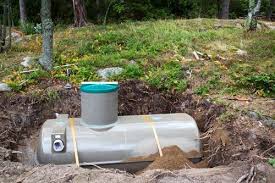


septic tank inspection. But how often should you really get it checked? Let’s break it down and explore why regular inspections are so important.
If you own a home with a septic system, maintaining it properly is more than just good practice—it’s essential. One of the most crucial parts of that maintenance is the septic tank inspection. But how often should you really get it checked? Let’s break it down and explore why regular inspections are so important.
A septic tank is an underground wastewater treatment system used in homes that aren’t connected to municipal sewer lines. When you use your sinks, toilets, or washing machine, the wastewater flows into this tank. Here, solid waste settles at the bottom, and liquids flow into the drain field.
Over time, the system can accumulate solids and develop issues if not maintained. That’s where routine septic tank inspections come in—they help prevent unexpected problems and keep your system operating efficiently.
As a general guideline, it’s recommended to schedule a septic tank inspection every three to five years. However, this frequency can vary depending on a few key factors:
Household Size: More people means more water usage, which can stress the septic system.
Tank Size: Smaller tanks need more frequent monitoring and maintenance.
Water Usage Habits: If your family uses a lot of water for laundry, dishwashing, or long showers, you may need inspections more often.
Age of the System: Older systems tend to be more vulnerable and may require more frequent inspections.
If you’re unsure, consult a professional inspector to help determine the ideal schedule for your system.
Routine septic tank inspection is more than just a box to check—it’s a critical part of protecting your home, health, and the environment.
Identifying small issues before they escalate can save you thousands in repairs. A failed septic system could mean replacing the tank or drain field—both costly fixes.
Leaking sewage can lead to contamination of your drinking water or cause exposure to harmful bacteria. Inspections help prevent these serious health risks.
With regular inspections and pumping, a septic system can last 20 to 30 years or more. Skipping maintenance, however, may lead to premature failure.
Malfunctioning systems can leak untreated wastewater into local water sources, harming wildlife and polluting the ecosystem. Septic tank inspections help ensure everything is functioning as it should.
A professional septic tank inspection includes a thorough assessment of your entire system. Here’s what typically happens:
Visual Inspection: The inspector checks the area around the tank and drain field for signs of leaks or damage.
Tank Opening: They open the tank to inspect water levels and internal components like baffles.
Sludge Measurement: The sludge at the bottom of the tank is measured to determine if pumping is needed.
Drain Field Evaluation: Signs of failure such as soggy areas or foul odors will be checked.
Pumping Recommendations: If solids are too high, the inspector may suggest immediate pumping.
While every 3–5 years is a good rule of thumb, there are red flags that may indicate the need for an immediate septic tank inspection
Slow drains throughout your home
Foul odors coming from plumbing or near the tank
Pooling water in your yard, especially near the drain field
Sewage backup inside your home
If any of these symptoms appear, don’t wait—schedule an inspection right away to avoid larger problems.
Regular septic tank inspection is key to keeping your system running efficiently and your home safe. While most systems need an inspection every three to five years, factors like household size, water use, and system age can shorten that timeline.
By being proactive with your septic tank inspections, you’ll:
Prevent costly emergencies
Avoid health risks
Extend the life of your system
Protect your environment
If it’s been a while since your last inspection—or if you’re noticing warning signs—consider contacting a trusted provider like Guardian Angel Inspection Services. Their experienced professionals deliver thorough and reliable septic evaluations that give homeowners peace of mind.
